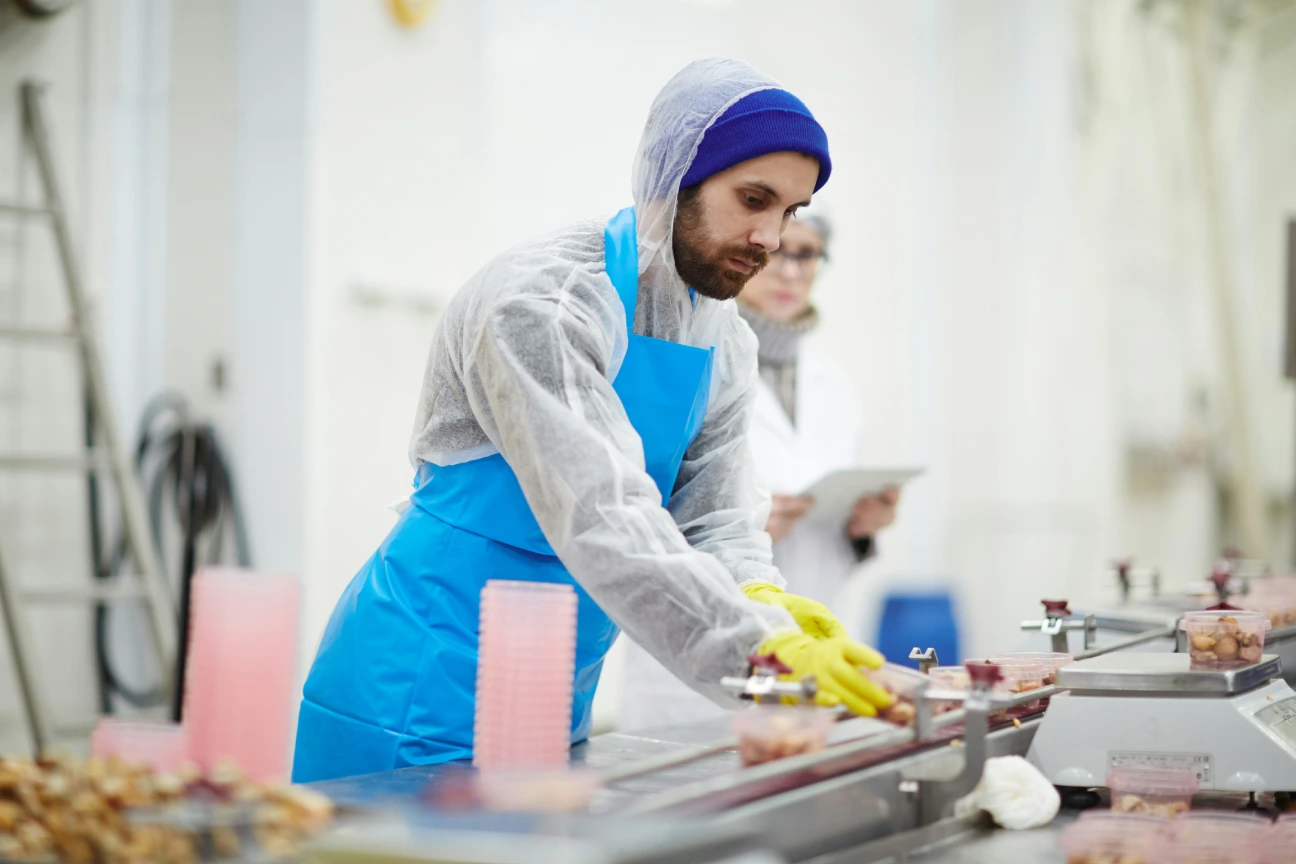
Not every brand has the equipment or capacity to produce at scale, and that’s where food co-packers come in. A contract packe is a specialized company that manufactures and packages food products on behalf of other businesses. We'll help you understand what they do, what to look out for and how to find the best co-packer.
A co packer of food is a company that makes and packages food products for another business. Food brands often use co-packers when they don’t have the right equipment or space to produce the food themselves. Co-packers take care of tasks like mixing, cooking, filling, sealing, and labeling products in safe, certified facilities. This lets food brands concentrate on selling, marketing, and developing new products while trusting the co-packer to handle production correctly and safely.
Food co-packers provide various services to help brands launch products quickly and effectively. Each facility may have different specialties, but common services include:
Choosing the right co-packer is an important decision. It can affect your product quality, brand reputation, and how well your business runs. If you choose the wrong partner, you may even run out of stock for long periods of time. Outsourcing production can give you flexibility and the ability to grow, but it takes careful planning and research. Here are the main things to think about when picking a co-packing partner:
Not every co-packer can handle all kinds of products. Some focus on dry goods, while others work with liquids, frozen foods, or items that don’t need refrigeration. Make sure the co-packer has experience with your specific type of product.
Depending on your market and customers, food safety certifications like HACCP, BRC, FSSC 22000, USDA Organic, or Halal may be required. A qualified co-packer should meet both regulatory standards and your brand’s quality expectations. Food Safety concerns should be at the top of your list.
Co-packers often have minimum production amounts, known as MOQ. Startups or brands trying out new products should confirm batch sizes at the beginning. They should also find partners that can provide flexibility during their early growth.
Check if the co-packer supports your preferred packaging format, whether it's glass jars, flexible pouches, cartons, or PET bottles. The right equipment ensures consistency, efficiency, and compatibility with your logistics setup.
Some co-packers offer in-house R&D services to help you with recipes and improve formulations. This can be a major advantage for brands developing new products or entering new markets.
The co-packer’s location affects transportation costs, lead times, and distribution efficiency. A regional partner might be more cost-effective if you're focused on a local market, while international brands may prioritize global export capabilities or locations that are close to distribution centers for Amazon or similar E-commerce platforms.
Good communication is very important. Ask the co-packer how they share updates on production, handle quality issues, and manage possible delays. A reliable partner will be proactive, open, and care for your product like it is their own. We recommend to always ask for the lead time, since they can range from one week up to several months.
If your recipe, blend, or process is unique, make sure you have legal protections. Reliable co-packers will keep your information private and may provide non-disclosure agreements (NDAs) to protect your intellectual property.
Now that you know what to consider, it is time to discuss the process of co-packing. What can you expect? Working with a co-packer helps you turn your recipe or idea into a ready-to-sell product. Here’s how the process usually goes, from the initial contact to the final delivery:
Please note that this is a general process. Depending on the co-packer, there may be some additional processes included, or they may have a different way of work.
Finding good co-packing companies can be tough. You need to think about certifications, production capacity, and packaging types. This is where Nutrada comes in. Nutrada is a B2B platform for the food industry. It connects brands with certified co-packing companies that fit their product type, technical needs, and compliance standards. This makes the search quicker, easier, and more reliable. Alternatively you can also visit the website of The European Co-Packers Association (ECPA).